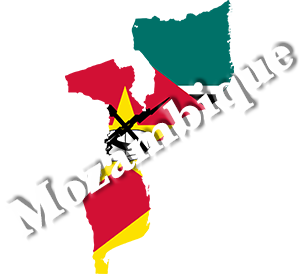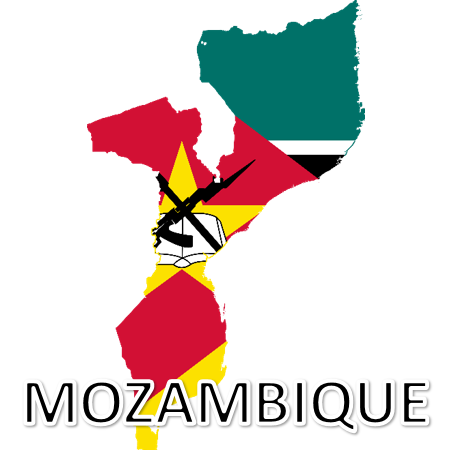 In the very town where Frontline missionaries were jailed in 1989, Wilna is pioneering a unique Bible based literacy training programme. So far this year Wilna has trained 33 teachers and helped establish 19 bush schools in remote areas of Tete province in Mozambique. Here are some exerpts from Wilna’s report: After the long war, droughts, famine and floods, the economy in the north of Mozambique has been crippled. Tete and Zambezia have been hit the hardest. People are struggling to survive under these adverse circumstances. Due to the betrayals during the war, suspicion and mistrust are pervasive. Some individuals took advantage of the anarchy and betrayed people to the enemy in order to avenge personal grudges – things that had nothing to do with the war. Thus suspicion and mistrust are ever present, even amongst believers.
Due to years of Frelimo propaganda, many Mozambicans do not trust whites either. Some local leaders were open about the fact that they want our money – but not us. Even though the Mozambicans are very friendly and hospitable – underneath mistrust and suspicion prevail. We tried to be as transparent, open and honest as possible to gain the trust of the Mozambicans. We need to teach and disciple a new generation free of fear of the evil spirits and witchdoctors. Fear is stifling their faith and hindering them from following Christ. The communities amongst whom we are establishing these schools are still living in great fear of being cursed and harmed by “the spirits.” It is only through intensive prayer and loving persistence that we can reach these precious people with the peace and freedom that only Christ can give. Officially, 33% of Mozambicans can read and write. In reality, less than 20% are literate. So congregations from the rural areas appealed for help to establish church schools in these neglected areas where there are no government schools. It was for just such a situation that I had designed the Read for Life (RFL) literacy programme. By God’s grace, the first of four in-service training courses was launched in March 1999. Frontline secretary, Charmaine, joined me in the field typesetting the translated course materials into the Chichewa language. Our goal was to train teachers to establish primary schools in remote areas and to teach children to read and write using the Bible as their text book. I also taught them how to teach songs, Bible memory verses, phonics and vocabulary in both their mother tongue, Chichewa, and Portuguese as a second language. Games and activities are also included into each lesson to reinforce the lessons taught. After the first Teacher Training Course we held a commissioning service and sent these teachers-in- training out to start their schools. From these trainees,19 new “bush schools” were started, some meeting in brick buildings others in reed shelters and some under large trees. When I later visited some of these new schools I was quite encouraged by the progress made. However there were the inevitable problems which we dealt with in the second training course in July/August. Some schools had a shortage of water for students and the logistics of carrying sufficient drinking water each day were discussed. Although I had strongly advised against having classes of more than 25, many classes had swelled to unmanageable proportions. One class had 124 children! Again I had to explain that children cannot learn effectively in such large crowds. The other problem was the ages. Some classes had children as young as 4 while the RFL programme is designed for ages 6 to 12. Under their cultural codes, the teachers felt obligated to try to please everybody and didn’t feel free to say no to any parents sending under aged children to their school. In reply I had to point out the harm that could result if the children fared badly – the teacher and the local church would be blamed. We noted that those teachers with small classes had made the most progress in teaching children to read and write. Our second Training Course was very beneficial. I was most impressed with the dedication of our volunteer teachers-in-training. Not only were they doing pioneering work but they were involved in a spiritual battle for the lives of many precious children. In spite of all the obstacles and lack of facilities these pioneer teachers are very enthusiastic and eager to teach and evangelise. Best of all is that the children are so eager to learn. It is a real joy to watch them in class. They love school and do not like holidays! What a great privilege it is to teach those who are so hungry to learn. “. . . the Gospel of Christ is the power of God to salvation for everyone who believes.” Roman 1:16 Wilna du Toit
0 Comments
Leave a Reply. |
More Reports
All
Archives |
"And Jesus came and spoke to them, saying, “All authority has been given to Me in heaven and on earth.
Go therefore and make disciples of all the nations, baptizing them in the name of the Father and of the Son and of the Holy Spirit,
teaching them to observe all things that I have commanded you; and lo, I am with you always, even to the end of the age.” Amen.” Matthew 28: 18-20
Go therefore and make disciples of all the nations, baptizing them in the name of the Father and of the Son and of the Holy Spirit,
teaching them to observe all things that I have commanded you; and lo, I am with you always, even to the end of the age.” Amen.” Matthew 28: 18-20
|
P.O.Box 74 Newlands 7725
Cape Town South Africa |
|

 RSS Feed
RSS Feed
